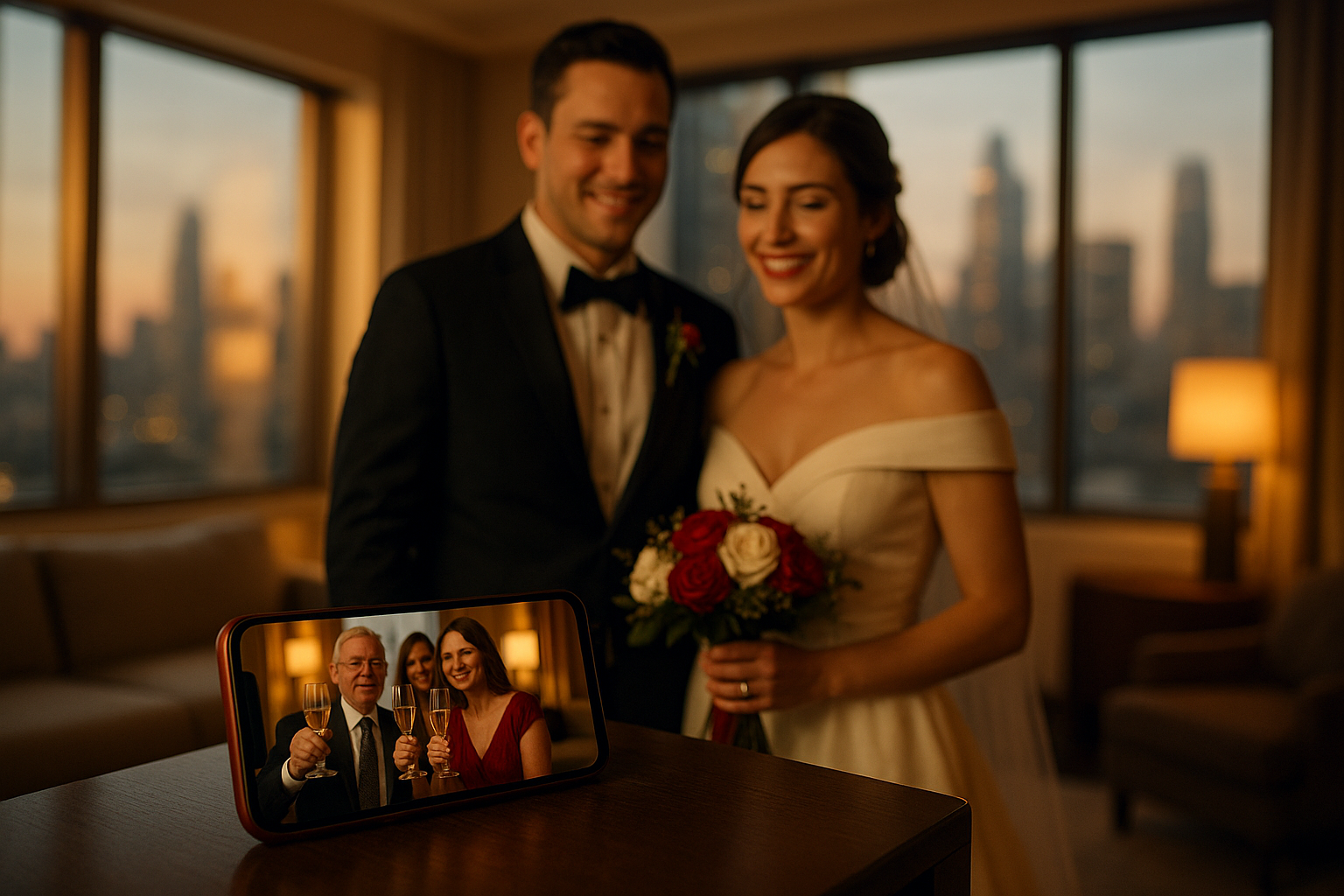In today’s digital age, couples are increasingly opting for virtual weddings, allowing them to celebrate their love with friends and family across the globe. The advent of 5G technology and faster internet connections has significantly enhanced the quality and experience of these remote ceremonies.
Understanding 5G and Its Impact on Virtual Weddings
5G, the fifth generation of wireless technology, offers ultra-fast speeds, low latency, and higher data capacity. This means smoother live streaming, real-time interactions, and enhanced attendee experiences during virtual weddings. With 5G, couples can host ceremonies with high-definition video and minimal delays, ensuring that every moment is captured and shared seamlessly.
Enhanced Live Streaming Quality
One of the primary benefits of 5G in virtual weddings is the improvement in live streaming quality. Traditional internet connections often struggle with buffering and lag, but 5G’s high-speed capabilities allow for uninterrupted, high-definition video streams. This ensures that virtual guests can witness the ceremony as if they were physically present.
Real-Time Interactions with Guests
Low latency, a hallmark of 5G, enables real-time interactions between the couple and their virtual guests. Features like live chats, instant reactions, and virtual toasts become more engaging and spontaneous, adding a personal touch to the digital celebration.
Incorporating Augmented and Virtual Reality
With 5G, integrating augmented reality (AR) and virtual reality (VR) into virtual weddings becomes feasible. Couples can create immersive experiences, such as virtual venues or interactive elements, making the ceremony more memorable for attendees. For instance, guests can virtually “walk” through the wedding venue or participate in interactive games during the reception.
Increased Accessibility for Global Guests
Faster internet connections ensure that guests from different parts of the world can join the virtual wedding without technical difficulties. This inclusivity allows couples to share their special day with loved ones who might not have been able to attend a traditional ceremony due to distance or other constraints.
Cost-Effective and Eco-Friendly Celebrations
Hosting a virtual wedding with the support of 5G technology can be more cost-effective than traditional weddings. Couples can save on venue rentals, catering, and travel expenses. Additionally, virtual ceremonies have a smaller carbon footprint, making them an eco-friendly choice.
Ensuring Legal Validity of Online Marriages
While virtual weddings offer numerous benefits, it’s essential to ensure their legal validity. Couples should research and comply with local marriage laws and obtain the necessary online marriage license. Consulting with professionals who specialize in online marriage services can provide guidance and ensure all legal requirements are met.
Choosing the Right Platform for Your Virtual Wedding
Selecting a reliable platform is crucial for a successful virtual wedding. Platforms that support high-definition video, real-time interactions, and are compatible with various devices will enhance the overall experience. Testing the platform beforehand can help identify and resolve potential issues.
Personalizing Your Virtual Ceremony
Despite being online, couples can personalize their virtual wedding to reflect their personalities and preferences. Incorporating themes, interactive elements, and personalized messages can make the ceremony unique and memorable for both the couple and their guests.
Preparing Guests for the Virtual Experience
Providing guests with clear instructions on how to join and participate in the virtual wedding ensures a smooth experience. Offering technical support or a test run before the actual ceremony can help guests feel more comfortable and engaged during the event.
FAQs
1. Is a virtual wedding legally binding?
Yes, virtual weddings can be legally binding if they comply with local marriage laws and the couple obtains the necessary online marriage license. It’s essential to research and adhere to the legal requirements in your jurisdiction.
2. How can we ensure a stable internet connection during our virtual wedding?
Utilizing a 5G connection or a high-speed wired internet connection can provide stability. It’s also advisable to have a backup connection and test the setup before the ceremony to address any potential issues.
3. Can we have a virtual wedding if some guests don’t have access to 5G?
Yes, guests can join using their existing internet connections. However, for the best experience, they should have a stable and reasonably fast connection. Providing a recorded version of the ceremony can also accommodate those with connectivity issues.
4. What platforms are recommended for hosting a virtual wedding?
Platforms like Zoom, Microsoft Teams, and Google Meet are popular choices due to their reliability and features that support large gatherings. It’s important to choose a platform that aligns with your specific needs and test it beforehand.
5. How can we make our virtual wedding interactive for guests?
Incorporating live chats, virtual toasts, interactive games, and real-time polls can engage guests. Additionally, using AR or VR elements can create immersive experiences that make the ceremony more memorable.
Embracing 5G technology and faster internet connections opens up a world of possibilities for couples planning virtual weddings. These advancements ensure that the ceremony is not only seamless and high-quality but also inclusive and personalized. If you’re considering a virtual wedding and need assistance with planning or legal requirements, feel free to contact us at Virtual Same Day Marriage. We’re here to help make your special day unforgettable.




